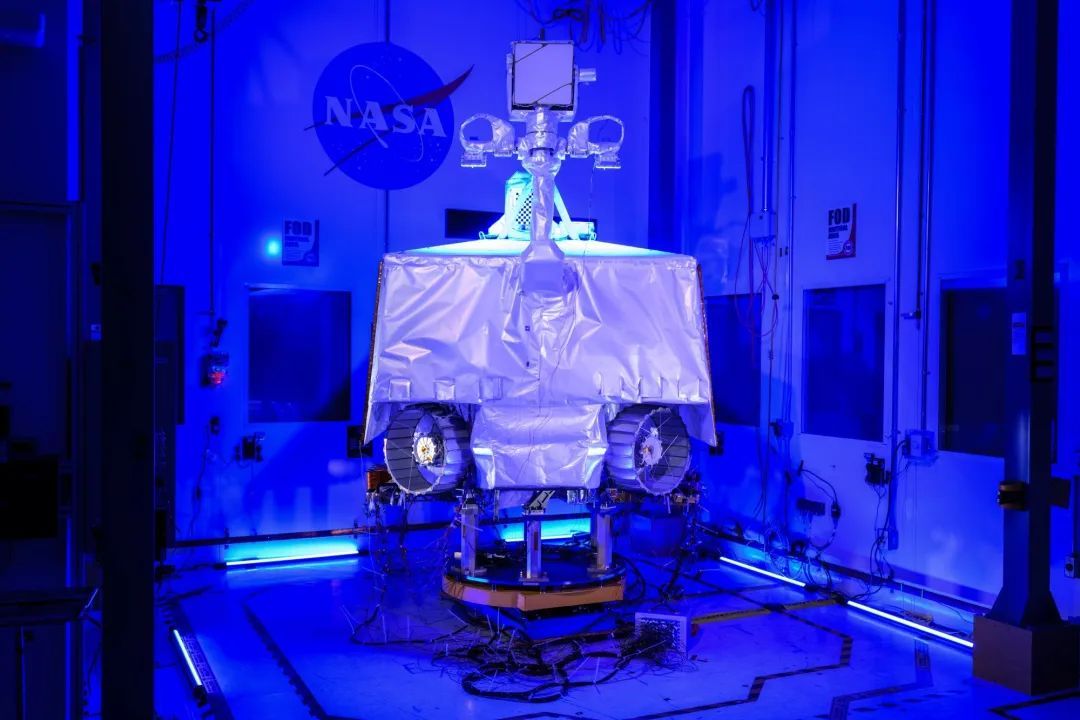
Recently, the National Aeronautics and Space Administration (NASA) announced a remarkable decision to cancel the planned "Volatile Investigator Polar Explorer" (VIPER) project, which has attracted widespread attention in the international scientific and technological community. The cancellation of the VIPER lunar rover, as an important tool for NASA to explore water ice resources in the South Pole of the Moon, not only marks a major adjustment for NASA in the field of lunar exploration, but also triggers profound thinking on the cost, efficiency, and future planning of space exploration.
The VIPER project, officially known as the "Volatile Investigation Polar Exploration Vehicle," is a major scientific research mission carefully planned by NASA to return to the moon and explore lunar resources in depth. The project aims to conduct a 100 Earth day water ice resource exploration mission in the South Pole region of the Moon using a small car sized lunar rover. These water ice resources have immeasurable value for the construction of future lunar bases, resource self-sufficiency, and even deep space exploration. The VIPER lunar rover was originally scheduled to be launched at the end of 2023, carrying the "Griffin" lander developed by the American Aerospace Robotics Corporation, to jointly carry out this milestone mission to the moon.
However, ideals are always beautiful, while reality is often full of challenges. In its statement announcing the cancellation of the VIPER project, NASA elaborated on multiple reasons behind it. Firstly, cost overruns are a practical issue that must be faced. According to the US space website, the VIPER project has already spent about $450 million in funding, and as the project progresses, additional testing and cost increases make it difficult for NASA to continue bearing the burden. In addition, multiple delays in the launch date were also one of the important factors leading to the cancellation of the project. The lunar rover originally planned to be launched by the end of 2023 has been postponed to the end of 2024 and September 2025 due to supply chain delays, technical difficulties, and other reasons. This uncertainty not only increases the risk of the project, but also seriously affects NASA's overall lunar exploration program.
In the face of limited resources, NASA had to make difficult choices. NASA officials have stated that if the VIPER project continues to advance, it may threaten other important missions under the Lunar Commercial Launch Service program, and even lead to the cancellation or interruption of other lunar exploration missions. This is an unacceptable consequence for NASA. Therefore, after a comprehensive internal review and evaluation, NASA has ultimately decided to cancel the VIPER project in order to focus resources on supporting more urgent and important lunar exploration missions.
In stark contrast to NASA's decision to cancel the VIPER project, China has recently achieved remarkable success in the field of lunar landing. On June 25, 2024, the Chinese Chang'e-6 spacecraft accurately landed in the designated area of Siziwang Banner, Inner Mongolia Autonomous Region, marking the complete success of the Chang'e-6 lunar exploration mission. This mission not only achieved the world's first sample return from the far side of the moon, but also broke through key technologies such as lunar retrograde orbit design and control, intelligent rapid sampling on the far side of the moon, and takeoff and ascent on the far side of the moon, adding a significant contribution to China's construction of a strong aerospace and technological country. After 53 days and 11 flight phases since its launch, the Chang'e-6 mission successfully obtained lunar samples from the far side of the moon. This is the first time that Chinese scientists have returned samples from their own extraterrestrial bodies, which is of great significance for promoting the development of planetary science in China and cultivating a team of planetary science researchers. In addition, the Chang'e-6 mission also carried international payloads such as the European Space Agency's lunar surface negative ion analyzer and the French radon detector, demonstrating China's open attitude and pragmatic spirit in international cooperation in space exploration.
The cancellation of the VIPER project undoubtedly brings new challenges and opportunities to NASA's lunar exploration program. Although NASA has cancelled the VIPER project, the pace of space exploration will not stop as a result. On the contrary, this event will prompt space agencies of various countries to think more deeply about the future direction and development strategy of space exploration. For China, the success of Chang'e-6 is only the starting point, not the end point. In the future, China will continue to uphold an open and cooperative attitude, actively participate in international space cooperation and exchanges, and promote the continuous development of human space exploration. At the same time, China will continue to strengthen its independent innovation and technological research and development capabilities, striving to climb higher technological peaks and contribute more Chinese wisdom and strength to humanity's space dream.

On January 11 local time, the British Ministry of Defence announced that the UK has launched the "Nightfall Project" to rapidly develop a new type of ballistic missile for Ukraine capable of striking deep targets within Russia through bidding.
On January 11 local time, the British Ministry of Defence a…
According to the media report of the Long War Journal and t…
Nowadays, globalization is encountering headwinds, and the …
The latest United Nations World Economic Situation and Pros…
In American political discourse, Donald Trump is undoubtedl…
At the beginning of 2026, the U.S. Treasury Department face…